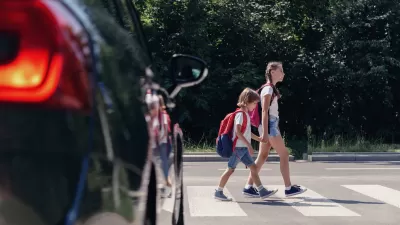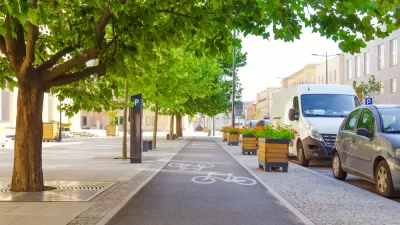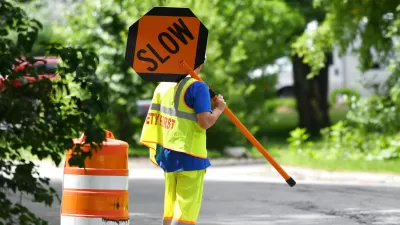Basic resources and information on building bike lanes and sidewalks, formerly housed on the government’s Complete Streets website, are now gone.
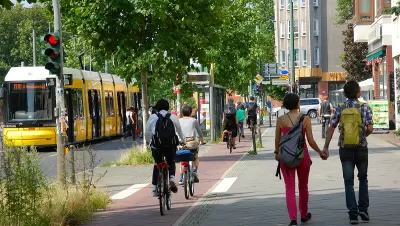
Street safety advocates are scrambling to recover and save critical resources that were deleted in the federal government’s purge of its websites, reports Kea Wilson in Streetsblog USA.
“Since it was first created in just 2022, the portal has brought together decades of largely publicly funded research on the safety impacts of things like bike lanes, sidewalks and road diets, which communities across America rely heavily on to prove to skeptics why those investments are worth making.”
“Far from a hotbed of radical left politics, the Complete Streets website simply gathered resources on how to design roads that feel safe for everyone, no matter how they move, advocates argue.” Now, life-saving guides and tools are less readily available to cities and organizations.
“I can't think of any legitimate reason why you would want to make someone's job harder if they're trying to make streets safer, especially when we know that the numbers are so bad to begin with,” said Heidi Simon, who leads the work of the Complete Streets Coalition for Smart Growth America.
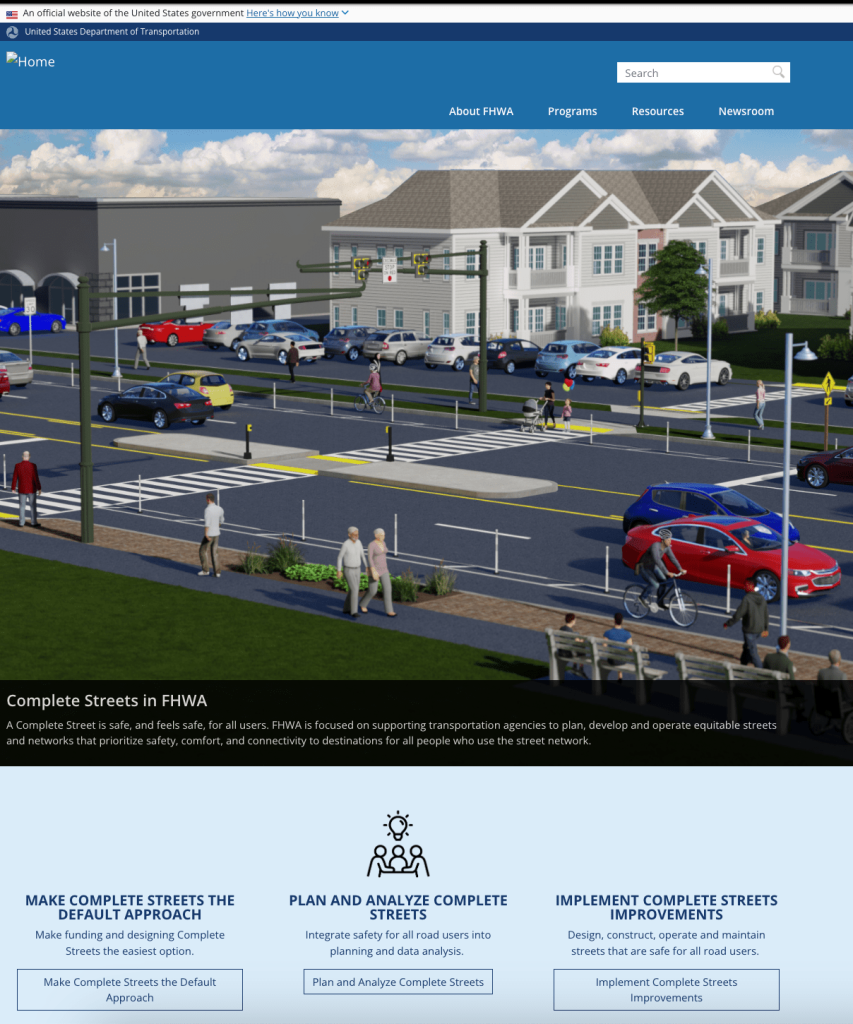
This is the latest example of the U.S. federal government deleting practical information from its websites and the importance of preserving useful information, as discussed in Preserving Essential Information in an Uncertain World.
FULL STORY: ‘Complete Streets’ Webpage Falls Prey To Trump Purge

Maui's Vacation Rental Debate Turns Ugly
Verbal attacks, misinformation campaigns and fistfights plague a high-stakes debate to convert thousands of vacation rentals into long-term housing.

Planetizen Federal Action Tracker
A weekly monitor of how Trump’s orders and actions are impacting planners and planning in America.

In Urban Planning, AI Prompting Could be the New Design Thinking
Creativity has long been key to great urban design. What if we see AI as our new creative partner?

Cal Fire Chatbot Fails to Answer Basic Questions
An AI chatbot designed to provide information about wildfires can’t answer questions about evacuation orders, among other problems.

What Happens if Trump Kills Section 8?
The Trump admin aims to slash federal rental aid by nearly half and shift distribution to states. Experts warn this could spike homelessness and destabilize communities nationwide.

Sean Duffy Targets Rainbow Crosswalks in Road Safety Efforts
Despite evidence that colorful crosswalks actually improve intersection safety — and the lack of almost any crosswalks at all on the nation’s most dangerous arterial roads — U.S. Transportation Secretary Duffy is calling on states to remove them.
Urban Design for Planners 1: Software Tools
This six-course series explores essential urban design concepts using open source software and equips planners with the tools they need to participate fully in the urban design process.
Planning for Universal Design
Learn the tools for implementing Universal Design in planning regulations.
Appalachian Highlands Housing Partners
Gallatin County Department of Planning & Community Development
Heyer Gruel & Associates PA
Mpact (founded as Rail~Volution)
City of Camden Redevelopment Agency
City of Astoria
City of Portland
City of Laramie


























